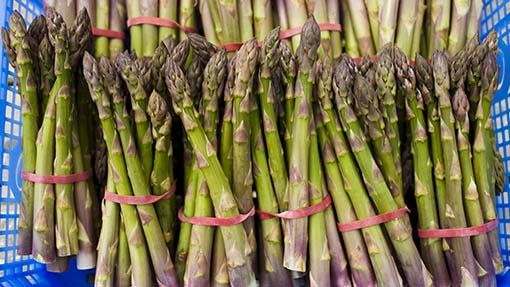UK farming self-sufficiency ‘falls to 60%’

Thursday 7 August marks the day that home-grown food supplies would have run out in the UK without imports, the NFU has warned.
And UK food production dropped another 2% year-on-year to 60%, according to the NFU – despite farmers being geared up to produce more.
This means if all the food produced in the UK since 1 January had been stored and eaten, supplies would have run out by Thursday.
The NFU said the date highlighted the “backward slide of food security in UK food production”.
Now Britain produces less than two-thirds of the food it consumes (60%), down from 75% in 1991, the union said.
The NFU has called on consumers, retailers, politicians and the wider food industry to back British farming and help our farmers produce more to reverse the decline in self-sufficiency.
NFU president Meurig Raymond said to think UK food would only last until Thursday (7 August) without imports was an “alarming notion”.
“Looking back over the past two decades and seeing the downward slope in self-sufficiency says to me – this needs to change,” he added.
“We know people want to buy British food, with 86% of shoppers wanting to buy more traceable food produced on UK farms.
“What we need now is for farming to be at the heart of decision-making across the wider food industry and government, to allow for more food to be produced and consumed here, in the UK.”
Read also: UK self-sufficiency drops for third consecutive year
British farming produces the raw ingredients for the £97bn UK food and drink industry. But the NFU has warned that the trade gap between UK exports and imports is widening.
While the UK’s food and drink export performance has doubled in the past decade, the economy is spending £21.3bn more on imports than it is receiving from exports – up from £10.2bn in 1991.
Mr Raymond urged the government and food industry to back the NFU’s Back British farming charter, which was launched last summer to help “grow” UK farming.
He said the country must introduce a solid plan for agricultural growth to reverse the current self-sufficiency trend and support long-term food security.
“A growth plan would need a cohesive partnership of the industry and government backing British farming; valuing and buying more British food and helping to set a framework that supports increasing production,” he added.
“It would also look at how we can attract new entrants to farming and wider agricultural careers.”
A Defra spokesman said: “Our current rate of self-sufficiency far exceeds those levels from the past, but we are not complacent and addressing future demand for food remains a key priority.
“We continue to work with industry and support UK producers to help boost food production – this includes our £160m agritech strategy, driving innovation in farming and developing new, resilient varieties of crops, and our plan to see the public sector sourcing £400m worth of food from the UK that they currently import.”
Prof Tim Benton, UK champion for global food security, said: “What our farmers produce is quite well related to what there is a market for and I think it would buck trends for there to be a stronger policy to tell farmers what to grow for a UK market only.
“Self-sufficiency is fine if we want to eat only what we produce – milk, livestock, wheat and root veg to a first approximation – or what we could produce, for example, more fruit and veg, but less wheat and no coffee and chocolate.”
